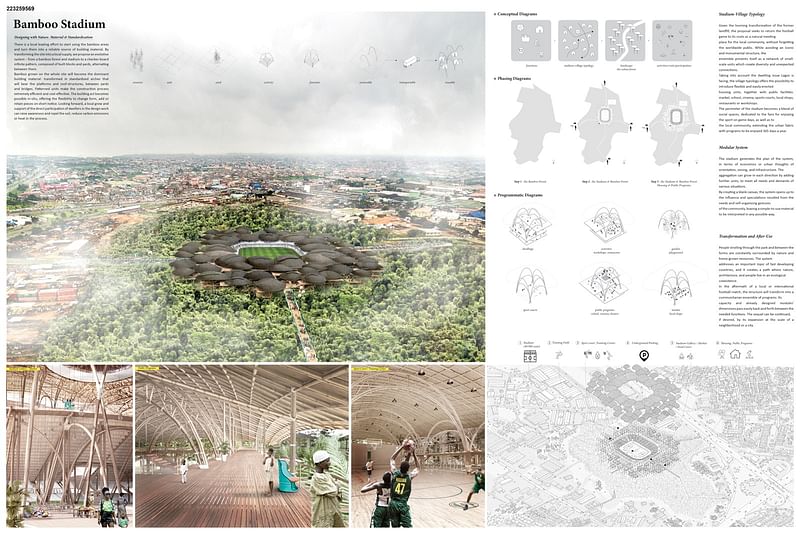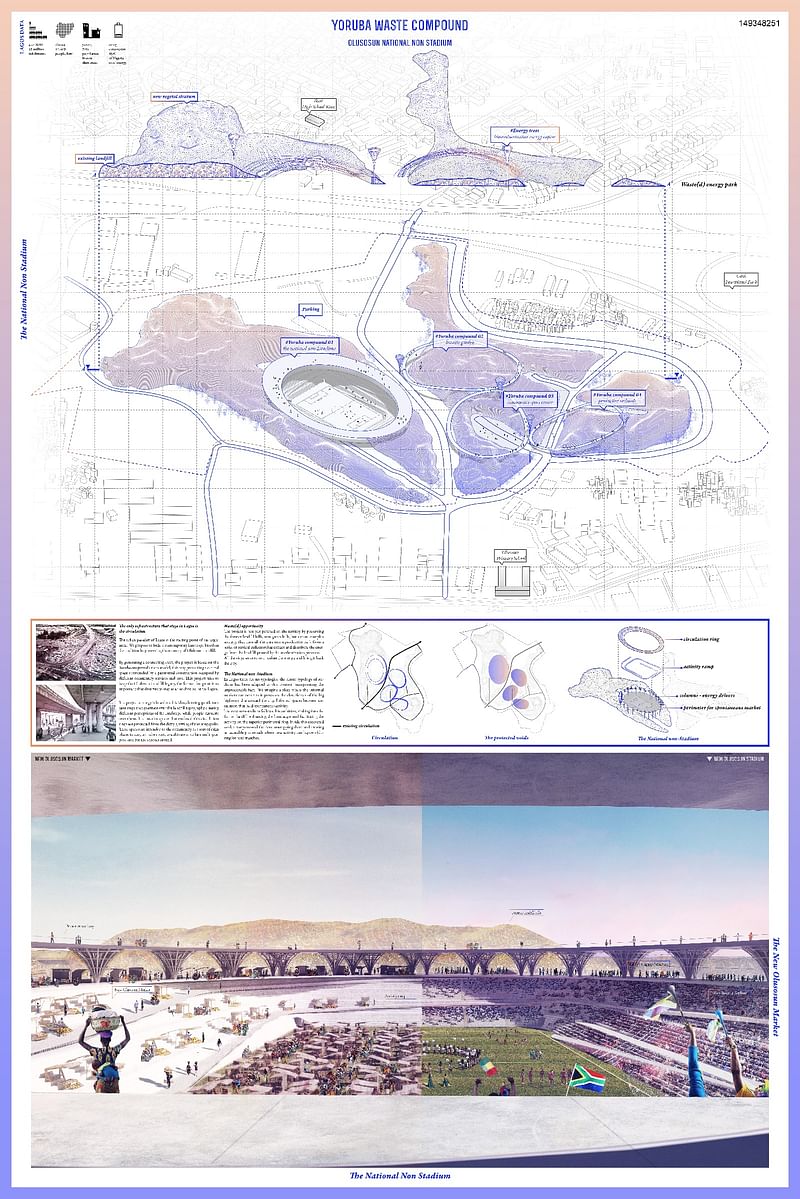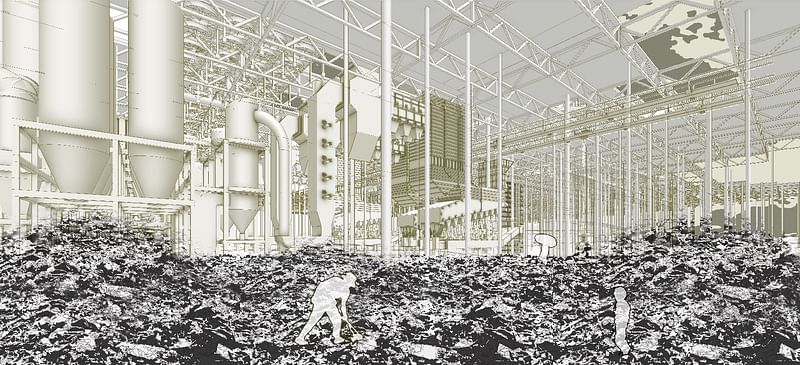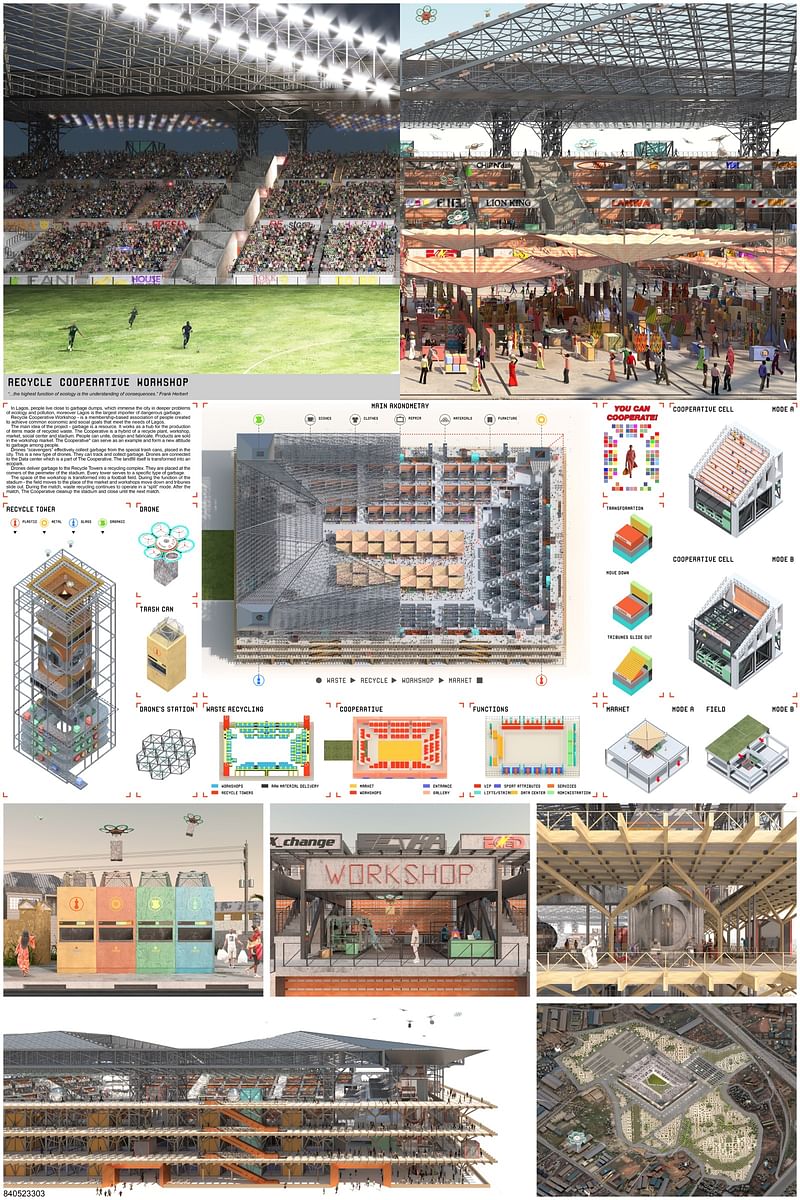The winning WASTE Multi-Purpose Stadium competition ideas
By Justine Testado|
Wednesday, Jan 23, 2019

Related
Participants in the WASTE Multi-Purpose Stadium ideas competition sent in their most creative visions for a multi-purpose stadium at the site of the former Olusosun Landfill in Lagos, one of the fastest-growing cities in the world. Waste in the city was previously managed by relocating it to the 100-acre Olusosun landfill. Recently, local government shut down the landfill to redevelop it into an urban green space and public park. Design ideas for this park were submitted to the WASTE Competition.
Entrants had to rethink how the stadium typology — notoriously known to be wasteful in its resources, its limited lifespan, and inconsistent usage — can serve its surrounding communities and also incorporate programs that encourage new attitudes toward waste.
“A preference for infrastructure over typology, landform over building form and systems over objects was evident throughout [the submissions]. Many projects also reflect a broad reconceptualization of building materials in relation to resources as opposed only to structural attributes,” commented jury member Sylvia Lavin.
“Making the stadium an atomized system is a representation of the will to make architecture submissive to time and change, still one of the holy grail missions of the field,” jury member Neil Denari said.
The esteemed jury selected a winning entry and three runner-up submissions. Scroll down to have a look.
1st Place: Bamboo Stadium
Participants: Iulia Dorobanțu and Lucas Monnereau
School: ENSA Paris Belleville

Project excerpt: “There is a local leading effort to start using the bamboo areas and turn them into a reliable source of building material. By transforming the site into a local supply, we propose an evolutive system – from a bamboo forest and stadium to a checker-board infinite pattern, composed of built blocks and yards, alternating between them. Bamboo grown on the whole site will become the dominant building material: transformed in standardized arches that will bear the platforms and roof-structures, between yards and bridges. Patterned units make the construction process extremely efficient and cost-effective. The building act becomes possible in-situ, offering the flexibility to change form, add or retain pieces on short notice. Looking forward, a local grow and support of the direct participation of dwellers in the design work can raise awareness and repel the soil, reduce carbon emissions or heat in the process.”
Runner-up: Yoruba Waste Compound
Participants: Ernesto Urquizar Quesada & Maria Cervantes Lardon
School: School of Architecture of Granada - Granada, Spain

Project excerpt: “The urban paradox of Lagos is the starting point of our argument. The project is based on the Yoruba compound urban model; a central space protected by a perimetral circulation. In Lagos there are no typologies. The new non-stadium sinks into the former landfill enhancing the Landscape and facilitating the activity on the superior ring. Inside this excavated void, a ramp crossed the tiers unwrapping them and creating an accessible promenade where new activity happen. A place where informal markets can occur as it grows on the cloverleaves of the big highways. Informal spaces between circulation that held spontaneous activity.”
Runner-up: The Platform
Participants: Shengran Zheng, Yuxin Jiang, Yong Kiat Tan & Biqin Li
School: University of Melbourne
Location: Melbourne, Australia

Project excerpt: “A long-term proposal for Olusosun Landfill, including 3 stages. In the first stage, the mega structure of the ‘Platform’ and Waste to Energy System (WtE system) is built onto the landfill, which enables the construction of the stadium and waste-to-energy process to be conducted at the same time. Waste resource could be reached under the ‘Platform’ for generating energy and electricity for city of Lagos. In the second stage, stadium is built with movable structures on the ‘Platform’ as an international football venue. The stadium is meant to be light weight and economical, and allow sunlight to penetrate through. In the third stage, waste on Olusosun landfill is all consumed and the WtE plant is transformed to community center and other space according to needs.”
Runner-up: Recycle Cooperative Workshop
Participants: Vlad Kapustin, Stef Elitsa & Ivan Maximov
Location: Moscow, Russia

Project excerpt: “In Lagos, people live close to garbage dumps, which immerse the city in deeper problems of ecology and pollution, moreover Lagos is the largest importer of dangerous garbage. Recycle Cooperative Workshop - is a membership-based association of people created to achieve common economic and social goals that meet the needs of Lagos. The main idea of the project - garbage is a resource. It works as a hub for the production of items made of recycled waste. The Cooperative is a hybrid of a recycle plant, workshop, market, social center and stadium. People can unite, design and fabricate. Products are sold in the workshop market. The Cooperative can serve as an example and form a new attitude to garbage among people.”
Find more info about the competition results here.
JURY
Neil Denari - Founder, Principal | Neil M. Denari Architects
Zeina Koreitem - Founder, MILLIØNS | Harvard GSD
Thom Moran - Founder, T + E + A + M | University of Michigan Taubman College
Tei Carpenter - Founder, Director, Agency-Agency | Columbia GSAPP
Ahmed ElHusseiny - Founder, AE Superlab
Olalekan Jeyifous - Artist / Designer, Vigilism.com
Ola-dele Kuku - Architect / Artist | Ola-dele Kuku Projects
Nate Appleman - Director of Sports + Recreation + Entertainment | HOK
Andrés Jaque - Founder | Office for Political Innovation
Oana Stanescu - Founder, Oana Stanescu Design Studio | Harvard GSD
Sylvia Lavin - Director of Critical Studies, PH.D., & M.A. | UCLA AUD

Share
0 Comments
Comment as :